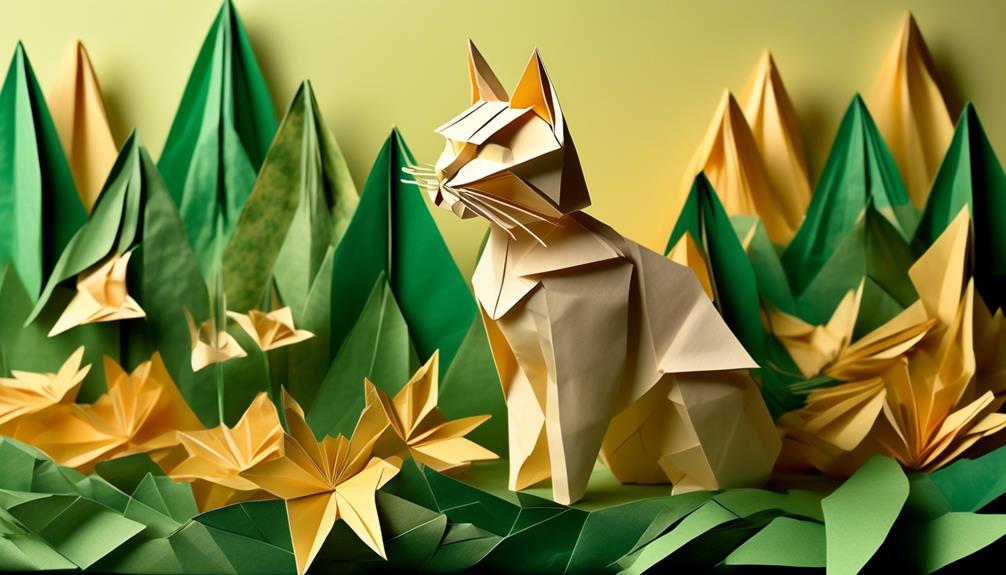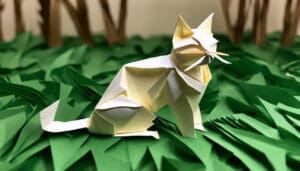Just as you’ve started noticing a few more silver hairs in your own reflection, you might see signs of aging in your cat with a little more napping and a little less leaping. It’s only natural to want to nurture them through these golden years with the best care possible, and an important part of that care is their diet.
As a responsible pet owner, you’re faced with a myriad of choices and possibly some confusion about what’s truly beneficial for your aging cat’s health and longevity. You know they need a diet that supports their slowing metabolism and aging organs, but the question is, what does that diet look like?
Let’s examine how to balance nutritious food that keeps them healthy and energetic while still including their favorite comfort meals. How can you make sure their later years are both healthy and comforting?
Key Takeaways
- Consult with a veterinarian to tailor nutrition for optimal health and vitality in aging cats.
- Choose senior cat food that meets the changing nutritional needs of aging cats, including the right balance of protein and hydration.
- Maintain an ideal body condition and manage weight effectively through portion control and dividing daily food intake into multiple meals.
- Consider special dietary considerations for senior cats with specific health needs, focusing on calorie control, hydration, and nutrient requirements.
Assessing Nutritional Needs
It’s essential to adapt your aging cat’s diet based on a vet’s advice to ensure they stay healthy. Senior cat food, which accounts for their changing nutritional needs, should have the right amount of protein to avoid kidney strain, as kidney disease is frequent in older cats.
Monitoring your cat’s body condition and muscle mass is vital. Loss of muscle mass is a serious issue, and a diet rich in high-quality protein can help to maintain their strength. However, always ensure that any increase in protein aligns with their overall health needs, particularly if kidney disease is present.
Hydration remains a cornerstone of cat health. Water, the most important nutrient, supports kidney function and overall well-being. Look for senior cat food that encourages water intake, whether through wet food formulas or by adding water to dry food.
Verify that the food meets the AAFCO guidelines to ensure complete and balanced nutrition. These guidelines help you provide the Omega-3 fatty acids and other nutrients your senior cat requires to thrive, not just survive, in their golden years.
Weight Management Strategies
As we consider your senior cat’s hydration and nutrient needs, let’s also focus on managing their weight, which is just as critical for their health and longevity.
Weight management strategies for your beloved pet aren’t just about losing weight; they’re about maintaining an ideal cats body condition for their stage in life. Senior cat foods are specially formulated to support these goals by balancing caloric intake with the right nutrients to maintain muscle mass and overall health.
Remember, portion control is key. Unlike the calorie-dense rations suitable for kittens and young adults, your aging cat requires careful calorie control. Consult your vet to determine the specific portion size that’s right for your cat, ensuring they’re not taking in excess fat that can lead to weight gain. Dividing their daily food intake into 2-5 meals will help manage their weight effectively and is a considerate way to feed your cat, aligning with their natural eating habits.
Don’t overlook the importance of water intake. Adequate hydration is a pivotal part of weight loss and overall health for senior cats.
Special Dietary Considerations
When caring for your senior cat, it’s essential to tailor their diet to their changing health needs, ensuring they receive the right balance of nutrients to support their well-being. As your cat advances in years, you’ll find that feeding a senior cat involves carefully considering their individual health status and adjusting their meals accordingly.
Here are some important points to keep in mind:
- Consult your veterinarian to determine the best senior cat food that provides complete and balanced nutrition tailored to your cat’s specific health needs.
- Be aware that common health issues associated with aging, such as kidney or heart disease, may require dietary changes.
- Ensure nutrient requirements are met, especially for those battling chronic conditions like lower urinary tract disease.
- Select diets that address the needs of senior and geriatric cats, focusing on calorie control and hydration.
As your beloved pet ages, it’s common for them to face a variety of health issues. It’s imperative you’re attentive and responsive to their evolving dietary needs. Work closely with your vet to make the necessary adjustments, always choosing compassion over convenience to ensure their golden years are as comfortable and nourishing as possible.
Transitioning to Senior Diets
Transitioning your aging cat to a senior diet can be a delicate process, but with patience and guidance from your vet, it’ll ensure their continued health and comfort. As your beloved cat enters their senior years, their nutritional needs evolve. Cats are generally considered seniors when they reach 7 to 10 years of age. At this stage, finding the best senior cat food for your senior is important to maintain their health.
A gradual transition to senior diets helps prevent gastrointestinal upset. It’s not just about switching foods overnight; it’s about introducing the new diet slowly, mixing it with the current one and gradually increasing the proportion over a week or more. This gentle approach respects your cat’s sensitive digestive system and helps them adjust without stress.
Ask your vet about the right food amount for your older cat since they might need less energy. Make sure they always have water, especially if you’re giving them more dry food. Canned food can help them drink more water and is good for their kidneys.
Monitoring Health and Diet
Monitoring your aging cat’s health and diet is a compassionate step in ensuring their golden years are filled with comfort and vitality. As guardians of their well-being, it’s important to stay attuned to their needs and the changes that come with age.
Remember, senior cats have different requirements to maintain their health and stave off disease.
To ensure you’re on the right track, consider these key points:
- Regularly assess body condition and muscle mass: This helps catch any early signs of disease.
- Consult your veterinarian for portion recommendations: They can tailor a feeding plan suitable for your cat’s specific health status.
- Maintain hydration: Always provide fresh water to prevent dehydration, a common concern in older cats.
- Choose the right cat food: Look for a nutrient profile that supports aging needs, including antioxidants, high-quality protein sources, and a balance of calories.
Frequently Asked Questions
What Should You Feed an Aging Cat?
Provide your aging pet with food that has a lot of antioxidants, is low in phosphorus, and has adjusted protein levels to help support them well into their older years.
Is Wet or Dry Food Better for Senior Cats?
You’ll want to consider wet food for your senior cat—it’s easier to eat, helps with hydration, and is often more appealing to their discerning palates. Always check with your vet for tailored advice.
What Is the Best Food for a 12 Year Old Cat?
You’ll want to give your 12-year-old cat a balanced diet tailored to their needs, often involving a mix of wet and dry food that’s rich in protein and easy to digest.
What Do You Feed an Older Cat That Is Losing Weight?
You’re facing a delicate situation; feeding your older cat that’s shedding pounds requires a gentle touch. Opt for high-calorie, nutrient-rich foods, and consider vet-recommended supplements to bolster their health and weight.




